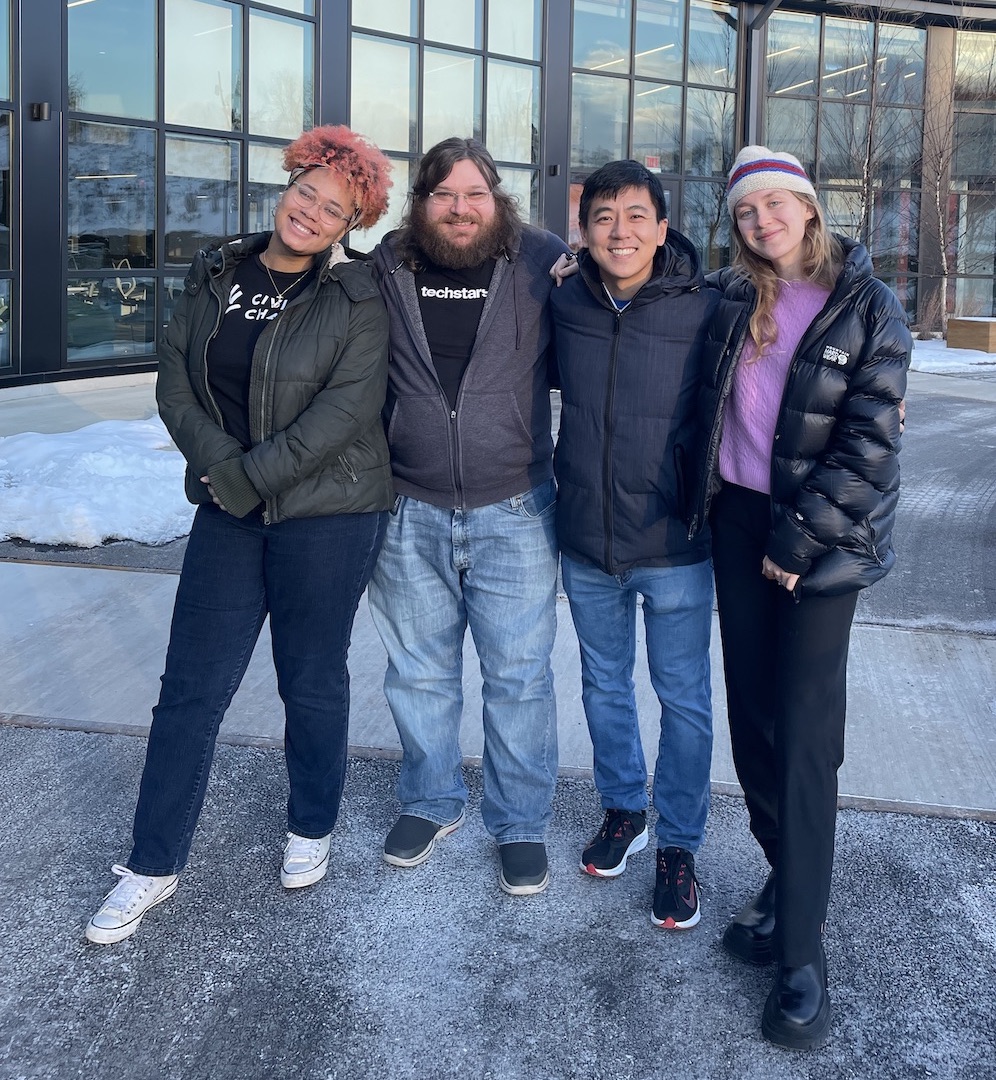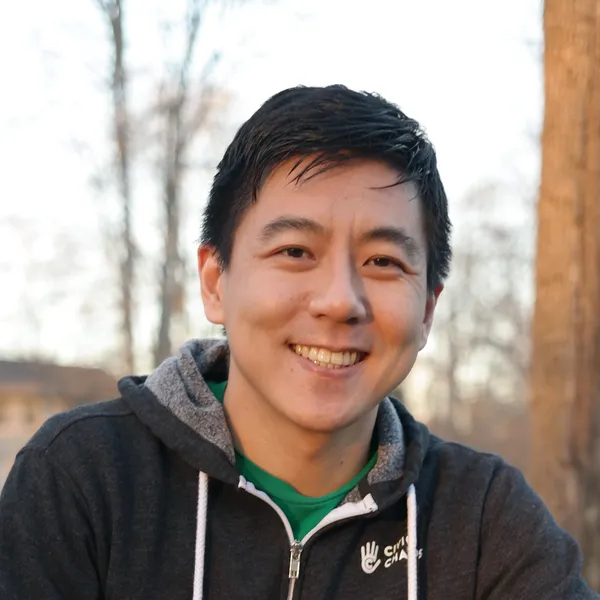RustBuilt recently caught up with Geng Wang, the cofounder of both Community Elf and Rent Jungle prior to his successfully exiting each of those companies, and more recently launching Civic Champs.
Here’s their Q&A:
1. How did you come to do this work and why is it so important to you personally?
Civic Champs is my third startup company and I knew I wanted to be involved with something that had a broader social impact. Entrepreneurship can be hard and doing something that matters is motivating — especially when things aren’t going right. Volunteering, specifically, has always been motivating for me. I think about how over the years, and honestly, since the 1960s, there has been a degradation of civil society, less civic engagement, and higher levels of polarization in our communities. I love volunteering because it brings people together across the political, ideological, economic, and social spectrums; to join together in supporting our communities around common interests. We can all agree we should feed the hungry, help those who are homeless, and educate our kids — in volunteering, there is an underlying goodness that helps us see our fellow volunteers immediately in a positive light. My hope is that as Civic Champs supports nonprofits in growing their volunteer programs and increasing their impact, an ancillary benefit is we are also helping to bring communities together.
2. What was your lightbulb moment for Civic Champs?
The original idea for Civic Champs was to create a mobile game around volunteerism — aka Pokemon Go for volunteering. We wanted to find an engaging way to connect volunteers with their local communities. However, as we talked to nonprofits and their volunteer managers on how they engage, recruit, and manage their volunteers, we quickly realized there was a greater opportunity in supporting these organizations more directly by providing easy-to-use technology that can increase their capacity (and helps enhance the volunteer’s experience).
3. What is the elevator pitch for Civic Champs?
Civic Champs is a volunteering and mentorship management platform for nonprofits, we increase volunteer impact and capacity by 3x while enhancing the volunteer experience.
4. Talk through your strategy in building a team around you.
The most important thing for me was finding a technical cofounder. I knew I wanted to have that set before launching Civic Champs and I was fortunate in having lived with my current cofounder and CTO, Mike Jeffery, in college for four years.
For the broader team, our strategy to date has been to recruit more for aptitude and passion who are naturally curious. Given the many hats that employees often have to wear and the quick changes in direction that are sometimes necessary, this has worked well to date. We are also committed to hiring a diverse team to better reflect the communities we serve and provide us with a broader perspective. Going forward though, we are now at a stage where we are shifting to look at more senior leaders who have experience in scaling specific functions within the nonprofit software sector.

5. What has surprised you most about starting your own business?
I was surprised at how different it feels to be CEO versus another cofounder. I now realize how much I relied on and leaned on Jon (Pastor) who was my cofounder and our CEO at Rent Jungle to “make the call.” So for me, it’s been important to find advisors who can help me think through tough topics. While, I ultimately need to make a choice, having that support has been crucial for me.
6. Talk through one of your daily rituals.
This is more of a weekly ritual but about a year ago, I picked up tennis again and started playing two to three times per week. I find it’s been a great way for me to get exercise not only physically but also mentally. I have found it helpful in building up more focus and mental resilience. In addition, because playing requires my focus, it has allowed me to not think about work during that time which helps keep my mind fresh.
7. What is a recent challenge you’ve faced as an entrepreneur and how did you overcome it? What lesson(s) did you take away from it?
A recent challenge has been prioritizing and saying no to new opportunities. As an early-stage startup, you have the ability to pivot and change directions quickly and go after the most promising opportunities. As we grow, it becomes increasingly expensive to do that and we now must filter those decisions through a more narrow lens (does this opportunity serve the same core customers, does it use the same product features, is the messaging and marketing the same, does it pay as much or more than projects in the current pipeline?). For us, we decided any new “custom” work must serve nonprofits, it must be applicable to additional prospects or customers, and unless it is the next thing in our roadmap, we will price it at 3x cost to account for the potential overage and to make up for lost opportunity costs by allowing us to bring on additional resources.
8. What does the next year look like for Civic Champs?
We’re reaching a stage where we are starting to scale the business and add more processes. With marketing and sales, we want to find better ways in making our processes more repeatable. At this point, we are mostly out of our ideation and innovation stage and largely taking what we have and scaling it. Financially, we are looking to at least triple our revenues, putting us on a path to be cash flow break even.
9. What is a key piece of advice you’ve received that you’d want to share with other founders?
In one of my favorite books, “The Hard Thing About Hard Things: Building a Business When There Are No Easy Answers,” Ben Horowitz recalls advice that he gleaned from a TV interview with football coach Bill Parcells. The advice coach Parcells received from a mentor as he was facing a rash of injuries was “nobody cares, just coach your team.” Ben Horowitz goes on in his book to explain how this is applicable to entrepreneurs as well.
Instead of spending time thinking about all the reasons why things aren’t going right and coming up with excuses (e.g., the market/economy tanked), entrepreneurs need to spend all of their time working on how they can overcome those challenges.
At the end of the day, investors care about the money, the team cares about having a motivating job that moves forward, and customers care about having a great product. Nobody cares about the excuses or mitigating circumstances.
Although you could view this as harsh, I think it’s a great reminder to focus on the things you can control.
10. How can our regional startup community help your efforts?
We are always looking for co-marketing partnerships so if you’re in the nonprofit space, please reach out! Similarly, if you are on the board or volunteer with a nonprofit that could use help managing and tracking its volunteers or mentors, let me know!







